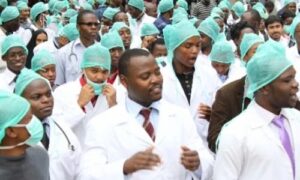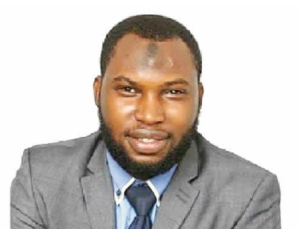Nigerian Diaspora Doctors President Discusses Returning Home and Challenges in Healthcare
Nigerian Diaspora Doctors President Discusses Returning Home and Challenges in Healthcare

In an interview with Ismaeel Uthman, Aminu Salisu, President of the Nigerian Diaspora Doctors Association, talks about the realities of practicing medicine abroad and the issues plaguing Nigeria’s healthcare system.

**Why did you choose to live and work abroad?**
The decision to work overseas was driven by personal and professional growth opportunities that we hope to eventually bring back to Nigeria. Relocating was not our first choice; rather, it was a necessity driven by the circumstances we faced. Many of us intend to return to Nigeria to contribute to its development. Although living abroad has become a norm for many, Nigeria remains our true home, and we still prefer to practice there.
**When did you move, and what were the challenges you encountered?**
I relocated in 2010, initially for medical education funded by my parents. At that time, studying abroad was more affordable compared to the highly competitive admissions for medical schools in Nigeria. After completing my education and National Youth Service, I returned briefly to Nigeria before moving back to the US to further my academic and professional skills.
**What were your early experiences in the US like?**
Adjusting to life in the US was challenging, as it is when moving to any new country. Leaving behind friends and familiar surroundings for a new environment comes with difficulties, but the structured system here rewards hard work and adherence to the law. This supportive environment helps individuals from modest backgrounds achieve their goals.
**Did you face discrimination or racism?**
I may have encountered discrimination, but I chose not to focus on it. My approach is to remain optimistic and focus on positive outcomes, which has minimized my experiences with racism.
**How has your experience been in the US?**
Overall, my experience in the US has been positive. The rule of law, stability, and an effective system contribute to my satisfaction. While not everything is perfect, the larger perspective has been favorable, and I have no significant complaints.
**How does medical practice in the US compare to Nigeria?**
There is a significant disparity between healthcare systems in the US and Nigeria. In Nigeria, the quality of healthcare varies widely among facilities, from tertiary hospitals to primary health centers. Developed countries have robust primary healthcare systems, which support comprehensive healthcare infrastructure. Nigeria needs to enhance its medical education, increase funding for healthcare infrastructure, and improve basic amenities like electricity and water. Effective healthcare administration and management are also crucial. Nigerian healthcare workers are dedicated, but the system needs improvement to match the conditions abroad.
**What cultural or systemic differences have you had to adapt to?**
In the US, healthcare systems are generally well-organized with accessible insurance for all citizens. There is no nepotism or compromise in service delivery; standards are enforced strictly, and accountability is maintained. Patient care is centered around the principle of “do no harm,” and legal frameworks ensure healthcare workers adhere to high standards.
**What is your view on Nigeria’s National Policy on Health Workforce Migration?**
The policy is a positive step and shows the government recognizes the shortage of healthcare professionals. However, its success depends on effective implementation and further consultation with stakeholders. While the initiative is promising, it needs to address the reasons many healthcare professionals leave Nigeria in the first place.
**Would you return to Nigeria to practice?**
The Nigerian Diaspora Doctors Association is committed to Nigeria and many members are eager to return to contribute to the nation’s development. However, returning is contingent on addressing the systemic issues that drove us abroad initially. Young professionals are particularly focused on career development, while those nearing retirement might consider returning for investment purposes rather than active practice.
**What conditions would prompt your return?**
A complete overhaul of Nigeria’s healthcare system is essential. This includes ensuring that salaries are competitive, providing incentives for serving underserved areas, and establishing comprehensive health insurance for all. Nigeria needs to improve its healthcare workforce ratio and develop efficient systems for primary and secondary care. A standardized referral process and proper role allocation are also necessary. Additionally, healthcare facilities need better infrastructure and resources.
**How do the conditions of practice abroad compare with Nigeria?**
For instance, a Nigerian doctor in Southeast Asia works an eight-hour shift, earns approximately N2.3 million after tax, and saves around N1.5 million monthly. This doctor has job security, clear responsibilities, and benefits such as health insurance and professional development opportunities. In contrast, a post-NYSC Medical Officer in Nigeria typically earns N300,000 per month, faces unreliable infrastructure, and works long hours with limited job security and lower savings.
TRENDING SONGS
 NPMA Appeals to Nigerian Government for Compensation After Lagos Market Fire
NPMA Appeals to Nigerian Government for Compensation After Lagos Market Fire
 Rest Every Four Hours, FRSC Issues Safety Guide for Fasting Motorists
Rest Every Four Hours, FRSC Issues Safety Guide for Fasting Motorists
 NNPC Boss Ojulari Bags UK Energy Institute Fellowship
NNPC Boss Ojulari Bags UK Energy Institute Fellowship
 Shock in Anambra: Bride Disappears Moments Before Wedding
Shock in Anambra: Bride Disappears Moments Before Wedding
 Nigerian Woman Returns ₦330 Million Accidentally Credited to Her Account
Nigerian Woman Returns ₦330 Million Accidentally Credited to Her Account
 APC Don Reach Morocco?’ VeryDarkMan Reacts to Seyi Tinubu Poster
APC Don Reach Morocco?’ VeryDarkMan Reacts to Seyi Tinubu Poster
 Bride Breaks Down in Tears as Wedding Meals Were Kept Secretly While Guests Go Home Hungry
Bride Breaks Down in Tears as Wedding Meals Were Kept Secretly While Guests Go Home Hungry
 Odogwu by Day, Robber by Night: How Marriage Joy Turned Into Tragedy
Odogwu by Day, Robber by Night: How Marriage Joy Turned Into Tragedy
 Nigerian Officials Allegedly Pocket N4–6B Weekly Through Smuggling Cartels at Seme–Badagry Border
Nigerian Officials Allegedly Pocket N4–6B Weekly Through Smuggling Cartels at Seme–Badagry Border
 Ahmad Yerima: Naval Officer to Face No Sanctions After Clash with Wike – Matawalle
Ahmad Yerima: Naval Officer to Face No Sanctions After Clash with Wike – Matawalle
Share this post with your friends on ![]()













